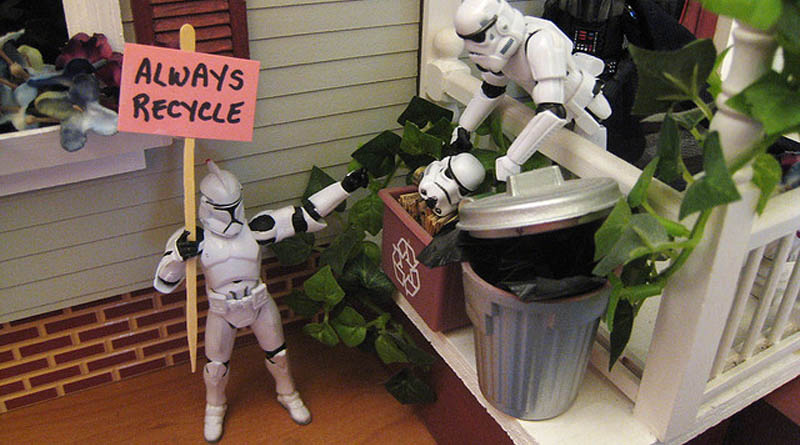SAVE MONEY & THE ENVIRONMENT BY RECYCLING PAINT
The commercial painting and decorating trade could save thousands of pounds every year if it used teamwork to recycle its unwanted paint.
A national waste and recycling company says that most paints used in the industry are classified as hazardous waste, meaning that it costs the trade a small fortune to dispose of safely and legally.
Instead, the BusinessWaste.co.uk company suggests that the trade should take part in a paint swap scheme so that as little is wasted as possible. Business Waste suggests medium-sized companies can save up to £10,000 per year in this manner.
“We reckon that even a one-man-band painting and decorating contractor can save thousands every year in waste site gate fees,” says Business Waste spokesperson Mark Hall. “Teaming up with their local competitors and colleagues means that they needn’t throw that excess paint into the skip.”
BusinessWaste.co.uk spoke to painters and decorators, from man-and-van operators to major companies, and found that no matter what the scale of the organisation, most contracts tend to over-estimate the amount of paint they need by between 5 – 10%.
Paint giants Dulux reckon 55 million litres of paint and 90 million containers are wasted every year both domestically and through the trade
“That’s usually no big deal when you’re painting a bedroom with a water-based emulsion,” says Hall, “But when it’s a big job weatherproofing the outside of a large building that means substantial wastage of specialist materials.”
BusinessWaste.co.uk says that this excess is often built into the quote to the customer, meaning the company isn’t really motivated to reduce waste – but that still means that painters are throwing away tonnes of paint every year. In addition there’s the problem of storing, transferring and disposing of specialist paints that add to both overheads and company paperwork.
Community RePaint is a scheme that collects leftover paint from the trade and redistributes it to community groups. There are around 70 schemes like this in the UK.
While Community RePaint is an excellent yet patchy scheme serving parts of the UK, it still doesn’t address the tide of wasted water- and solvent-based paints that are left over from commercial jobs every week of the year.
“A paint swap with nearby companies is certainly something we’d consider,” one medium-sized decorating company in the Midlands told BusinessWaste.co.uk. “It’s just a matter of setting up a Freecycle-style Facebook group, and advertise unwanted quantities to other companies.
“And we’ve got a storeroom full of leftovers that we’d only be too glad to get shot of in this way.”
Another owner-operator says he’d be only too pleased to take unwanted paint off the hands of larger operators: “It’ll save them money, it’ll save me money, and it’ll save dumping perfectly good paint as hazardous waste. Everybody’s a winner,” he says. “And it works both ways too – I’ve got stuff in my garage that might come in handy for somebody. Let’s talk!”
BusinessWaste.co.uk says that paint and paint products make up the single biggest by-product of the whole construction industry that can easily be saved and recycled for other jobs.
“We handle whole truckloads of paint containers at the end of any building job, which go straight to the tip because they’ve already been budgeted, “says Hall.
“It’s something that can easily be stopped, and the decorating trade can lead the way by (literally) pooling their resources.
“It saves money, it saves chemicals, and – best of all – it saves us the headache of handling tons of hazardous waste. Swap and reuse your paint, you know it makes sense.”
FACT BOX
BusinessWaste.co.uk campaigns for tighter laws to discourage littering, wasteful behaviour, and to encourage greater recycling: http://www.businesswaste.co.uk

